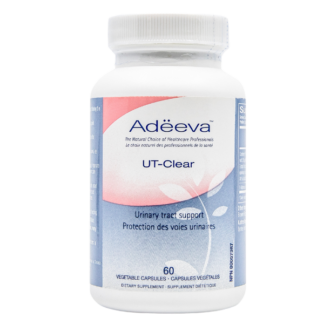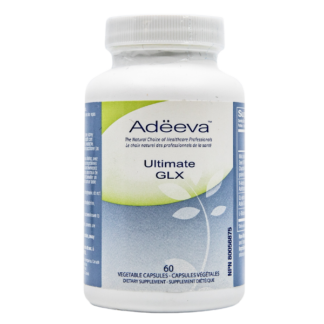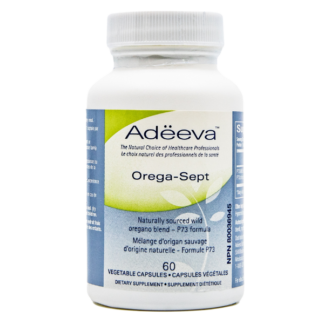Description
One capsule of Nature’s Iron contains 45 mg of elemental iron in which the iron is chelated to amino acid carriers for maximum absorption into the bloodstream. Studies show that the form of chelated iron (ferrous bisglycinate chelate) in Nature’s Iron is significantly more bioavailability than prescription iron supplements, as well as over-the-counter inorganic forms of iron (ferrous sulfate, ferrous gluconate etc), and is not associated with constipation problems.
Nature’s Iron also contains meaningful dosages of specific nutrients that are required by the body for hemoglobin and red blood cell production. These heme factors include ascorbic acid, methylcobalamin, folic acid and pyridoxine. A deficiency in any of these vitamins, as well as iron, is known to result in anemia, fatigue, shortness of breath, irregular shaped red blood cells, and/or impaired hemoglobin synthesis. Hemoglobin is the iron-protein complex within red blood cells that picks up oxygen in the lungs and transports it to all body tissues for energy production.
Due primarily to blood loss during menstruation, a significant number of females (especially teenagers and women in their child-bearing years) are known to have at least grade one iron deficiency (serum ferritin level between 12-20 ng/ml). The symptoms of grade one iron deficiency include fatigue, sometimes recurrent infections (iron is required for immune function) lack of concentration ability (iron is required for brain function), inability to perform exercise on consecutive days due to lack of energy and poor recovery. Thus, even in cases where anemia is not present, grade one iron deficiency can still produce symptoms of lingering or recurrent fatigue, immune compromised states, and brain dysfunction.
In these cases individuals should have their serum ferritin levels assessed. Anyone with a value below 50ng/ml (and above 12 ng/ml) should consider taking 1-3 capsules per day of Nature’s Iron until their serum ferritin reaches the optimal range above 50ng/ml. Individuals with a serum ferritin level below 12 ng/ml require high dose prescription iron or iron injections to resolve this potentially life-threatening anemic state.
Unfortunately, only 10-20% of the iron in food is absorbed into the bloodstream. Iron from plant foods (fruits, vegetables, nuts, seeds, legumes) have the lowest absorption properties. Thus, once iron levels fall into the lower range, food alone is unlikely to resolve the problem. Supplementation with Nature’s Iron becomes a fast and effective way to help re-establish optimal nutritional status and overcome symptoms of grade one iron deficiency. Women, during their child-bearing years, typically lose 2 mg of iron per day, while men typically lose 1 mg per day. This means that women have to consume approximately 15-20 mg per day of iron from food in order to absorb sufficient iron to replace their daily iron loss. This is very difficult to do and thus, many women, without realizing it, find themselves in a state of grade one iron deficiency for much or most of their lives. In fact, iron deficiency is the leading nutrient deficiency world-wide.
Other common reasons for blood loss and low iron and/or hemoglobin include:
- Aspirin-induced intestinal bleeding (or other non steroidal anti-inflammatory drugs)
- Peptic ulcer
- Hiatus Hernia
- Chronic enteritis
- Hookworm infestation
- Neoplasm (cancer)
- Hemorrhoids
- Uterine blood loss from various problems
- Frequent nose bleeds (epistaxis) – should have nasopharynx examined for lesions
- Frequent pregnancies
- Chronic alcohol consumption
Individuals who suffer from chronic or recurring fatigue, infections, concentration problems (even depression), or lack the energy to exercise, may be suffering, in part, from grade one iron deficiency and/or a deficiency in Heme factors. In cases where serum ferritin is between 12-49ng/ml, consider Nature’s Iron as a safe, effective natural way to re-establish iron status and support red blood cell and hemoglobin synthesis.
Dosage: 1 to 3 capsules per day until achieving a serum ferritin above 20 ng/ml or, more ideally, above 50 ng/ml
Clinical Application: Grade One Iron Deficiency – a serum ferritin level below 50 and above 12 ng/ml






Reviews
There are no reviews yet.